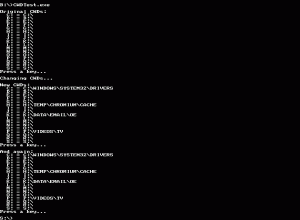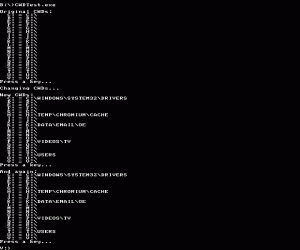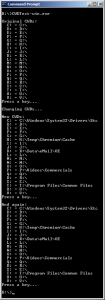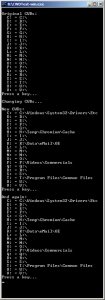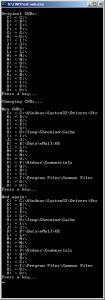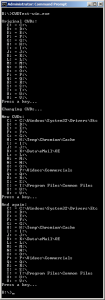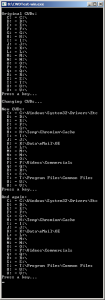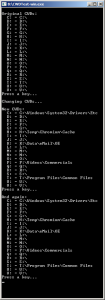Pursuant to an argument at this Super User question, I have done some testing and written a test program to try to clarify the situation with current-working-directories.
As Raymond Chen explains, per-drive CWDs have been around since DOS, which makes sense because DOS’s only interface was the command-line. He goes on to explain that in Windows, the command prompt keeps track of per-drive CWDs by using environment variables.
The point is that while the actual manner in which they are tracked may differ, there are per-drive CWDs in all Microsoft operating systems from DOS, up to Windows 7. This can be easily demonstrated with the following program (adjusting drive letters and paths as appropriate).
#include#include #include void PrintCWDs() { char cwd[260]=""; for (int i=3; i<27; i++) { if (!_chdrive(i)) { getcwd(cwd,260); printf(" %c: = %s\n", 64+i, cwd); } } printf("Press a key...\n"); char key=getch(); } void ChangeCWDs() { for (int i=3; i<27; i++) { if (!_chdrive(i)) { switch (i) { case 'C'-'A'+1 :chdir("\\Windows\\System32\\Drivers"); break; case 'H'-'A'+1 :chdir("\\Temp\\Chromium\\Cache"); break; case 'K'-'A'+1 :chdir("\\Data\\eMail\\OE"); break; case 'P'-'A'+1 :chdir("\\Videos\\Commercials"); break; case 'T'-'A'+1 :chdir("\\Program Files\\Common Files"); break; } } } } int main(int argc, char**argv) { printf("\nOriginal CWDs:\n"); PrintCWDs(); printf("\nChanging CWDs...\n"); ChangeCWDs(); printf("\nNew CWDs:\n"); PrintCWDs(); printf("\nAnd again:\n"); PrintCWDs(); return 0; }
This program shows that the CWD is maintained for each drive in DOS, Windows XP, and Windows 7 as seen below.
DOS:
XP:
7:
